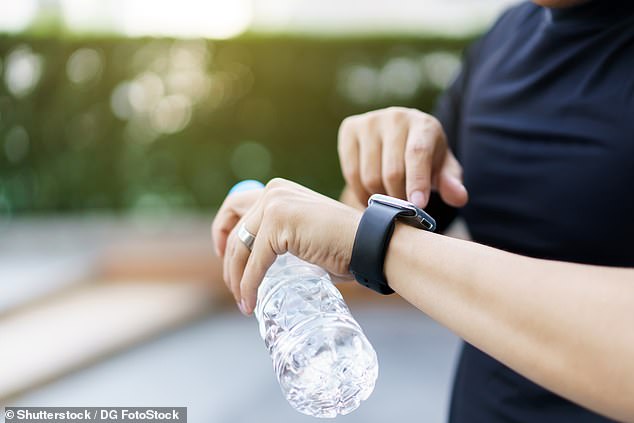Fitness trackers—from smart watches to rings—are sold as easy ways to monitor heart health.
But scientists say some of these devices may be giving dangerously wrong readings.
A new review from the University of Washington School of Medicine raised the alarm, finding certain smart devices claiming to track blood pressure often get it wrong.
That means high blood pressure could go undiagnosed—putting users at serious risk of strokes, heart attacks, kidney failure and dementia.
They warned doctors and the public not to rely on these trackers to give reliable results—and advised medics to use old-fashioned inflatable cuff monitors instead.
The news comes as NHS data shows over four million people in England could be living with undiagnosed high blood pressure.
Dubbed a ‘silent killer’, it often has no symptoms but if left untreated can lead to fatal heart attacks, strokes, kidney disease and even dementia.
The condition affects up to a third of the adult population yet NHS data suggests three in ten remain undiagnosed.

Scientists have now discovered a major flaw in some fitness trackers which could lead to serious health-problems like strokes and heart attacks going undetected
Adults between 40 and 74 are recommended to have a blood pressure check once every five years, as part of the NHS Health Check.
However just 39 per cent of eligible adults currently take up the invitation.
The NHS estimates that 2.5 million additional blood pressure checks could lead to 250,000 more people receiving vital treatment for hypertension.
This could prevent 3,700 strokes, 2,500 heart attacks and save 2,000 lives over five years.
Many experts have looked to fitness trackers—owned by a quarter of the population—as a way to improve uptake.
Also known collectively as ‘wearables’, use of these device leads to an increase of around 1,800 extra steps per day, 40 minutes of additional activity, and a reduction of approximately 1 kg in body weight, studies have shown.
They can monitor a variety of health metrics including heart rate, oxygen levels, sleep and step count.
Some devices are also able to carry out electrocardiograms, which detect heart rhythms and rates.
However when it comes to blood pressure, older methods may still be the best.
The Washington University researchers didn’t test the blood pressure trackers themselves.
Instead, they looked at studies that comparing their readings to standard cuff-based monitors during daily activities, sleep, and after medication use.
A major drawback was that cuffless devices rely on sensors that need to calibrated using a traditional cuff, and their reading can drift over time if users don’t re-calibrate regularly.
They also tend to be less reliable in certain situations, like during sleep, exercise, or when blood pressure changes quickly.
On top of this, results can be affected by things like skin tone—since the sensors rely on light reflecting off the skin—body size, and medical conditions such as irregular heart rhythms or diabetes.
Another major issue flagged in the review is that many devices on the market have not gone through proper independent testing.
The researcher concluded there was a real risk the public could be mislead by numbers that look precise but aren’t trustworthy.
Cardiologist from the University of Washington School of Medicine, Dr Eugene Yang, said: ‘Cuffless devices are appealing to patients and clinicians, but they have a long road ahead before they are ready for clinical use.’
Last year the NHS has launched a campaign to find the ‘missing millions’ with high blood pressure, rolling out an additional 2.5million blood pressure checks in community pharmacies.
Under the Pharmacy First programme, those aged 40 and over are urged to take up the offer of a free test, which is quick and requires no advance booking.
The then health Minister Andrea Leadsom said: ‘Millions of adults in England unknowingly have high blood pressure, without experiencing any symptoms.
‘Knowing if you have a healthy blood pressure is so important and this new drive will help to prevent the potentially fatal consequences of untreated high blood pressure.
‘I urge people to go to their local pharmacy today to get their blood pressure checked. It could be a life-saving trip.’





